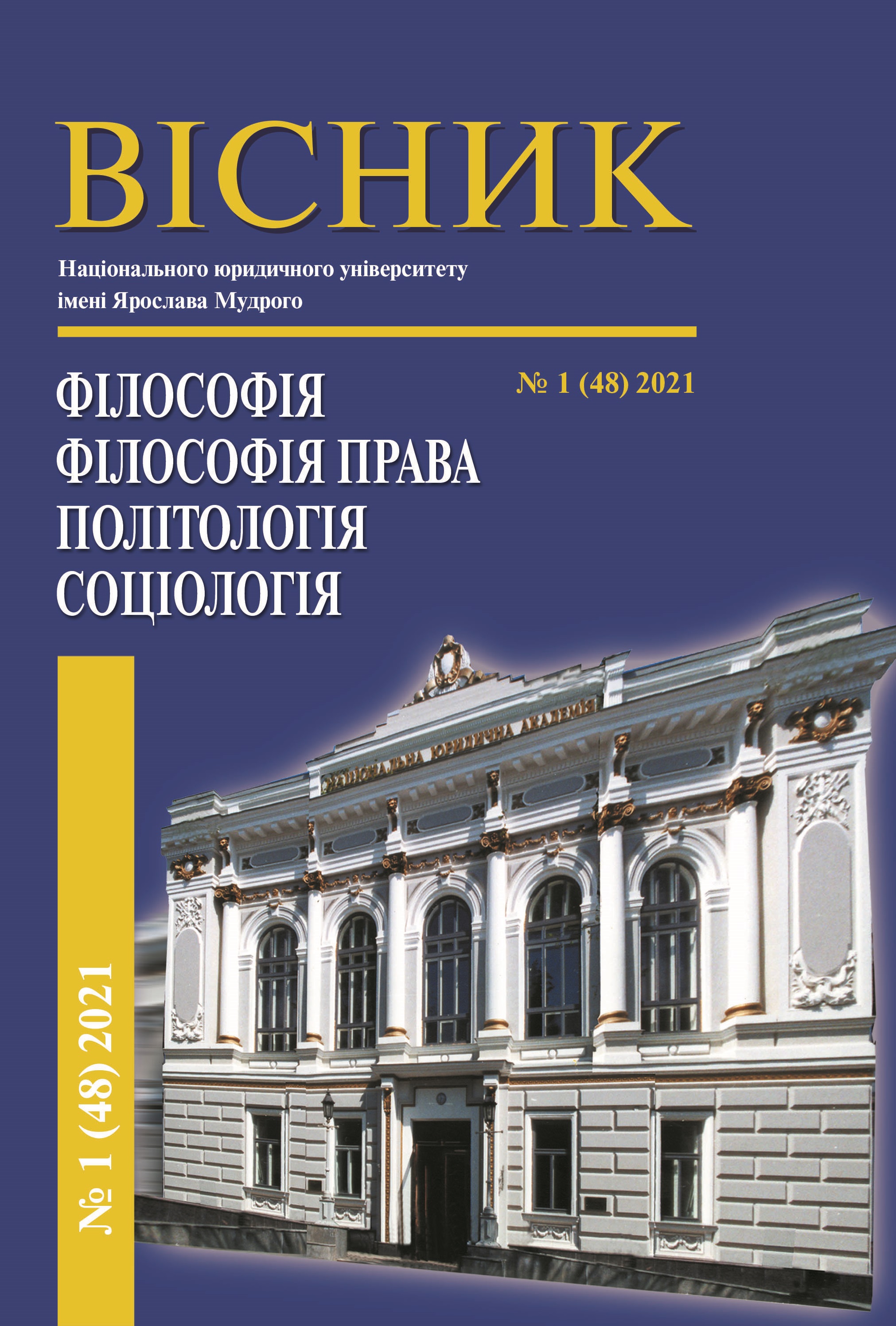ВИХІДНІ ЗАСАДИ АДЕКВАТНОЇ АНТРОПОЛОГІЇ КАРОЛЯ ВОЙТИЛИ
THE BASIC PRINCIPLES OF ADEQUATE ANTHROPOLOGY BY KAROL WOJTYLA
Author(s): Mariia Hryhorivna DovhanSubject(s): Christian Theology and Religion, Anthropology, Philosophy
Published by: Національний юридичний університет імені Ярослава Мудрого
Keywords: adequate anthropology; experience; ethical personalism; Karol Wojtyla; person; phenomenology; philosophical anthropology;
Summary/Abstract: Problem setting. Anthropological issues are one of the key areas of research in both the humanities and natural sciences. Karol Wojtyla’s philosophical and theological heritage is a valuable object of study in view of the thinker’s study of human problems in various philosophical fields, analysis of the results of scientific achievements and the distinctive features of methodology. The importance of Karol Wojtyla’s anthropological teaching is determined by its practical nature. Recent research and publications analysis. Of particular interest are the works of the following researchers: Gh. Pilusj, J. Kupnyj, I. Galjarovich, P. Bortkevych, F. Ghrenjuk, Ch. S. Bartnik, S. Kovaljchyk, M. Ghrabovsjkyj, P. Jarocjkyj, O. Kyrylova, I. Savynsjka, O. Bondar. The variety of theories and often the fragmentary nature of research reveals the needfor their systematization and rethinking the anthropological teachings of Wojtyla. Paper objective. The goal of the paper is to study the peculiarities of Karol Wojtyla’s adequate anthropology. Paper main body. The paper reveals the basis of the philosophical and anthropological doctrine of the thinker, which is represented in the unity of spiritual, religious, and moral manifestations of human transcendence. It analyzes the connection of Wojtyla’s anthropological heritage with personalism, phenomenology, and Thomism. It is established that the creative heritage of Karol Wojtyla is characterized by a kind of conceptual and categorical apparatus that combines philosophical and theological concepts based on ethical terms. Conclusions of the research. It is established that, in contrast to the Aristotelian- Thomistic interpretation, Wojtyla considered freedom to be the basis of all human qualities. It is investigated that the basic concepts of adequate anthropology of Wojtyla include: person, work, freedom, experience, love, law, beauty, truth, goodness, duty, and responsibility. Based on the research, I concluded that Karol Wojtyla is a representative of ethical personalism.
Journal: Вісник НЮУ імені Ярослава Мудрого. Серія: Філософія, філософія права, політологія, соціологія
- Issue Year: 48/2021
- Issue No: 1
- Page Range: 110-120
- Page Count: 11
- Language: Ukrainian

